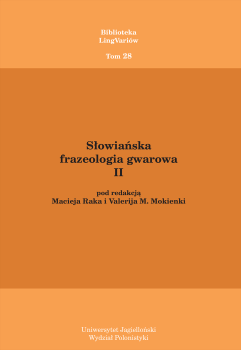Frazeologia podhalańska w pamiętnikach i gawędach górali jako źródło rekonstrukcji językowego obrazu głodu
Streszczenie
PODHALE PHRASEOLOGY IN DIARIES AND STORIES OF HIGHLANDERS AS A SOURCE OF RECONSTRUCTION OF THE LINGUISTIC PICTURE OF HUNGER
This article aims to reconstruct the components of the linguistic picture of hunger in the Polish Highlands. The crucial method used in the analysis is the linguistic picture of the world created by Jerzy Bartmiński and other scholars of the ethnolinguistic field. The realisation of these methodological assumptions consists in the exploration of the following: systematic data, survey data and textual evidence. Thereupon, the texts in Podhale dialect (diaries and stories) collected at the Tatra Museum Archives are analysed using the information from dialect dictionaries, phraseology dictionaries and other Polish language dictionaries, as well as the generalized survey results. Based on the carried-out research, it can be concluded that hunger is printed in the highlanders’ memory. The studied excerpts prove that this particular lexeme was mainly used in its basic meaning, although, phrases and idioms with a metaphorical indication can also be found. Lack of food was perceived as something negative as evidenced by the listings of pejorative names describing values, emotional states and experiences. Hunger visited the highlanders’ houses as a result of natural disasters and wars, or it simply lasted regardless of its cause. After thorough consideration of idioms and phrases deeply rooted into the highlanders’ dialect, hunger is portrayed as something that came against people’s will, usually lasted for a long time and had bad influence – if forced its victims to behave immorally or even do things that were perceived to be degrading to human dignity.





